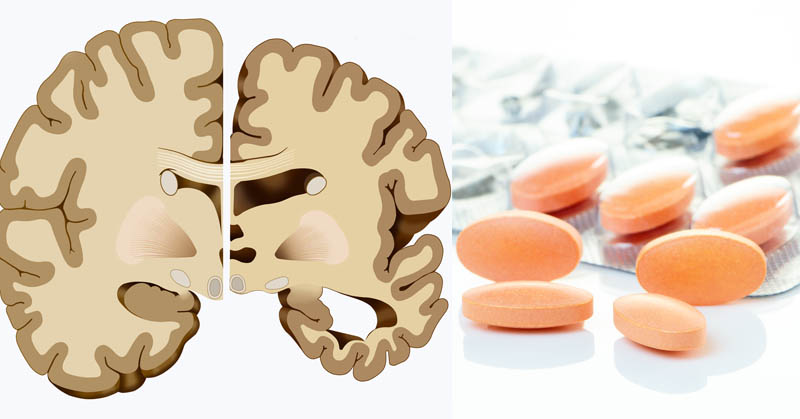Statins are some of the most widely prescribed drugs on the market. They promise to lower cholesterol levels and prevent heart disease. More than 1 in 4 Americans over the age of 45 are taking statins. What many people don’t know, is just how much damage they can do.
Here are five reasons why you should never take statins:
1. Statins Reduce Vitamin K2

Research published in Expert Review of Clinical Pharmacology revealed that statins may actually stimulate atherosclerosis and heart failure. The study found that statins inhibit the synthesis of Vitamin K2, which protects the arteries from calcification. Without enough Vitamin K2 in the body, plaque levels worsen and your risk of chronic diseases can increase. Your body becomes at risk for osteoporosis, heart disease, heart attack and stroke, along with brain disease and even cancer.
2. Statins Don’t Work

Statins claim to help lower cholesterol levels and in turn lower your risk of heart disease and heart attack. High cholesterol levels aren’t the only factor when it comes to your risk of heart disease. Evidence has shown that statins might actually worsen your heart health.
A report published in the Expert Review of Clinical Pharmacology found that statin advocates used a statistical tool known as relative risk reduction. They used this to amplify the so called beneficial effects of statins. If you look at the actual numbers, statin drugs benefit only 1% of the population. Out of every 100 people treated with statins, only one person will have one less heart attack.
3. Statins Reduce CoQ10

Coenzyme Q10 is used for energy production by every cell in the body. It’s vital for maintaining good health, high energy levels and general quality of life. Statins deplete your body of CoQ10, which can have devastating results to your health.
CoQ10’s reduced form is known as ubiquinol. It’s a critical part of cellular respiration and ATP production. ATp is a coenzyme used as an energy carrier to the cells in your body. Depleting your body’s main source of cellular energy can have detrimental effects on your heart, which is the most energy-demanding organ in the body.
4. Statins Reduce Ketone Production

Statins work to lower cholesterol in the body by inhibiting the enzyme in the liver that produces cholesterol. This is the same enzyme that produces CoQ10. This enzyme also produces ketones, which are vital nutrients for your mitochondria, produced in the liver. According to the journal Trends in Endocrinology & Metabolism, “Ketone bodies are emerging as crucial regulators of metabolic health and longevity.”
5. Statins Increase Your Risk Of Serious Diseases

Studies have shown that statins deplete the body of CoQ10, inhibit the synthesis of Vitamin K and reduce the production of ketone bodies. The combination of these issues in the body can increase your risk of other serious diseases, including:
- Cancer – Research has shown that long-term statin use more than doubles a woman’s risk of two major types of breast cancers. Invasive ductal carcinoma and invasive lobular carcinoma risk are heightened by statin use. Other studies have concluded that the use of any statin drug is associated with a significant increase in risk for prostate cancer.
- Diabetes – As statins increase insulin resistance, they are known to increase your risk of diabetes. Statins raise diabetes risk by raising your blood sugar levels while preventing your liver from making cholesterol.
- Neurodegenerative Diseases – Your brain contains about 25% of the cholesterol in your body. It’s a critical part of synapse formation, which allows you to think, learn new things and form memories. Memory loss, comparable to Alzheimer’s disease, is widely reported in association with statin use.
- Musculoskeletal Disorders – People who use statins are more likely to suffer from musculoskeletal conditions. Muscle weakness, cramps, autoimmune muscle diseases and tendinous diseases have all been reported in associated with statin use. This occurs because statins interfere with selenium-containing proteins which are crucial for preventing oxidative damage in your muscle tissue.
Sources:
The JAMA Network
NCBI
NCBI
Mercola
NCBI
NCBI
Science Direct
NCBI
NCBI
Canadian Journal of Physiology and Pharmacology
NCBI


